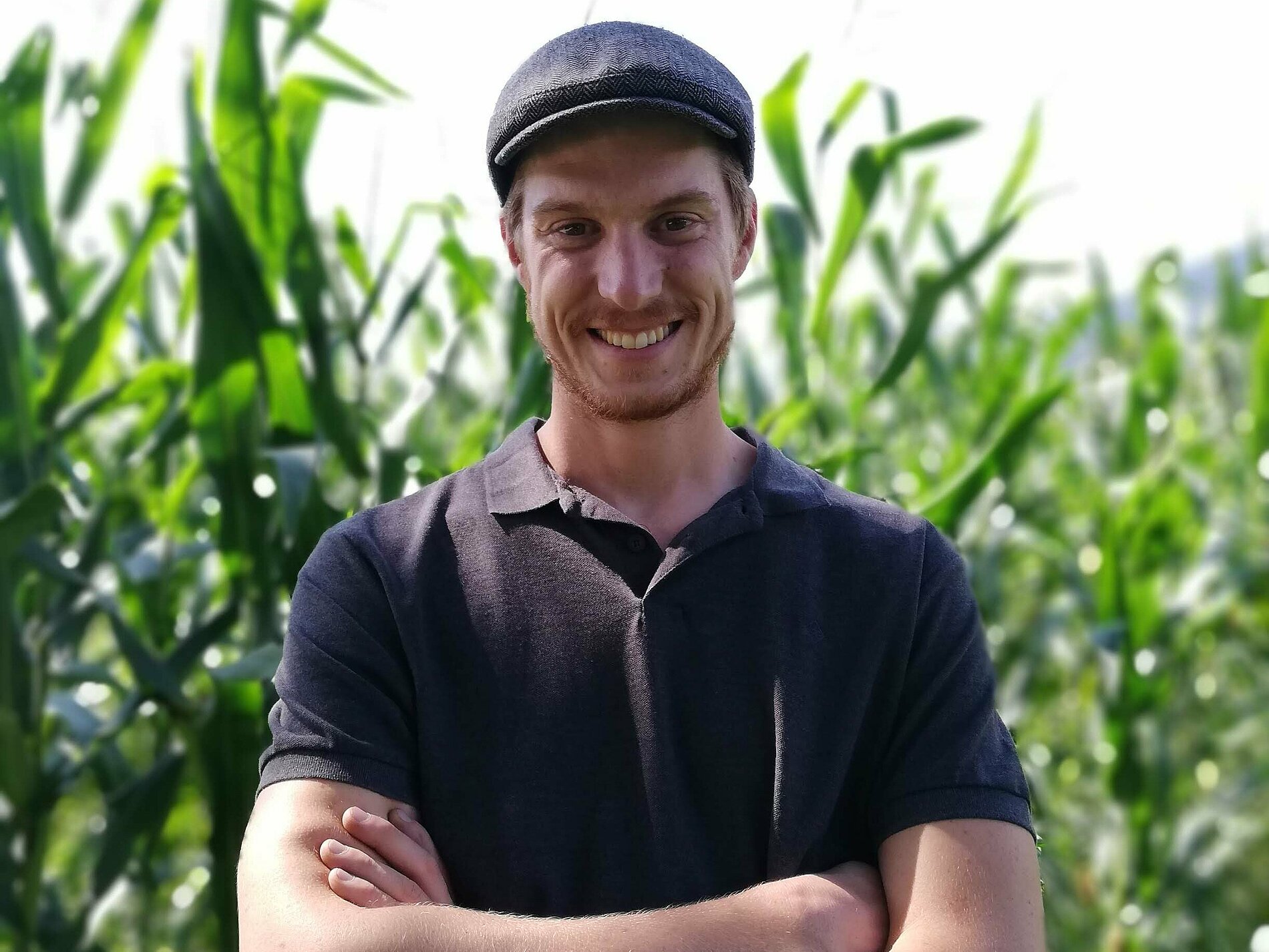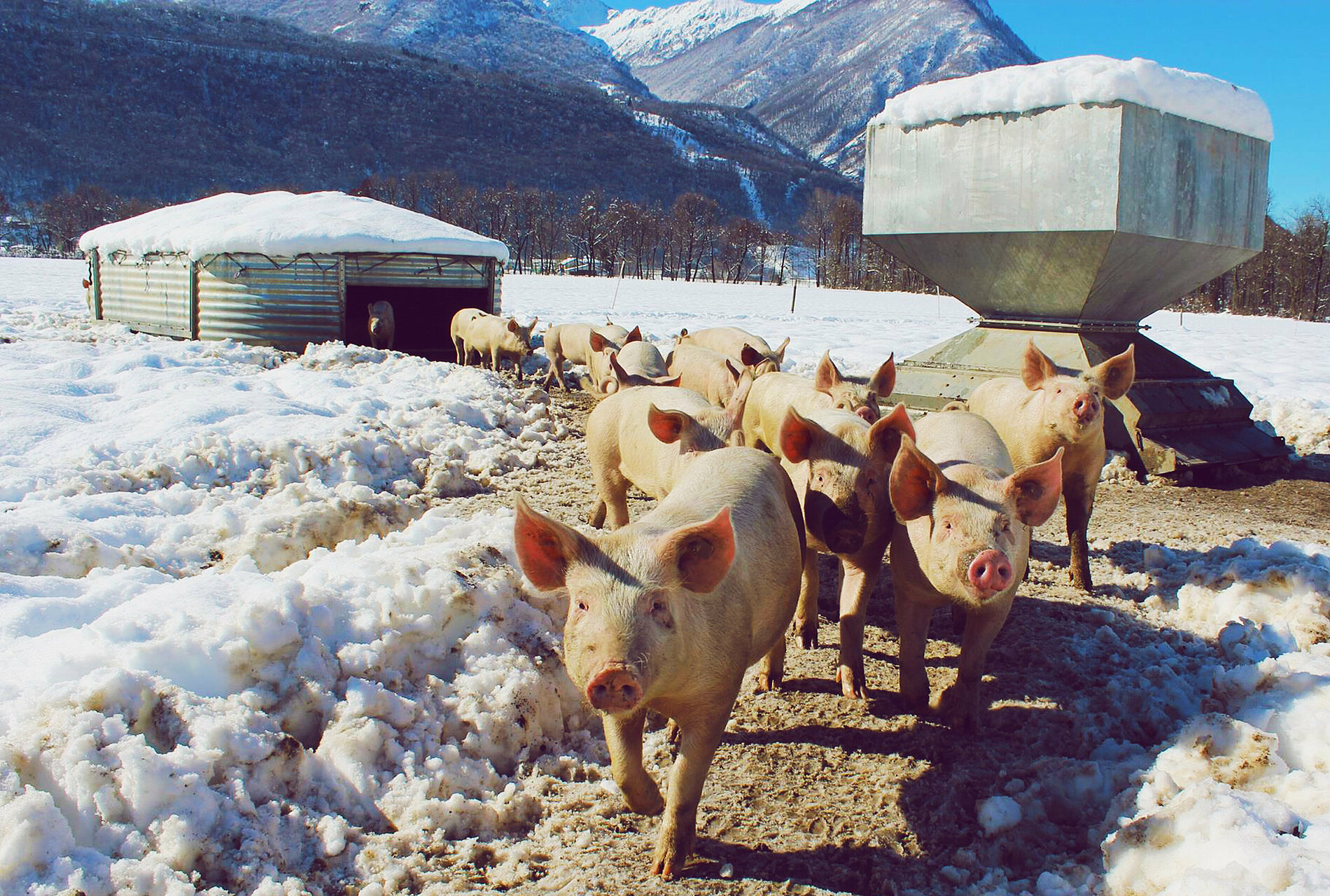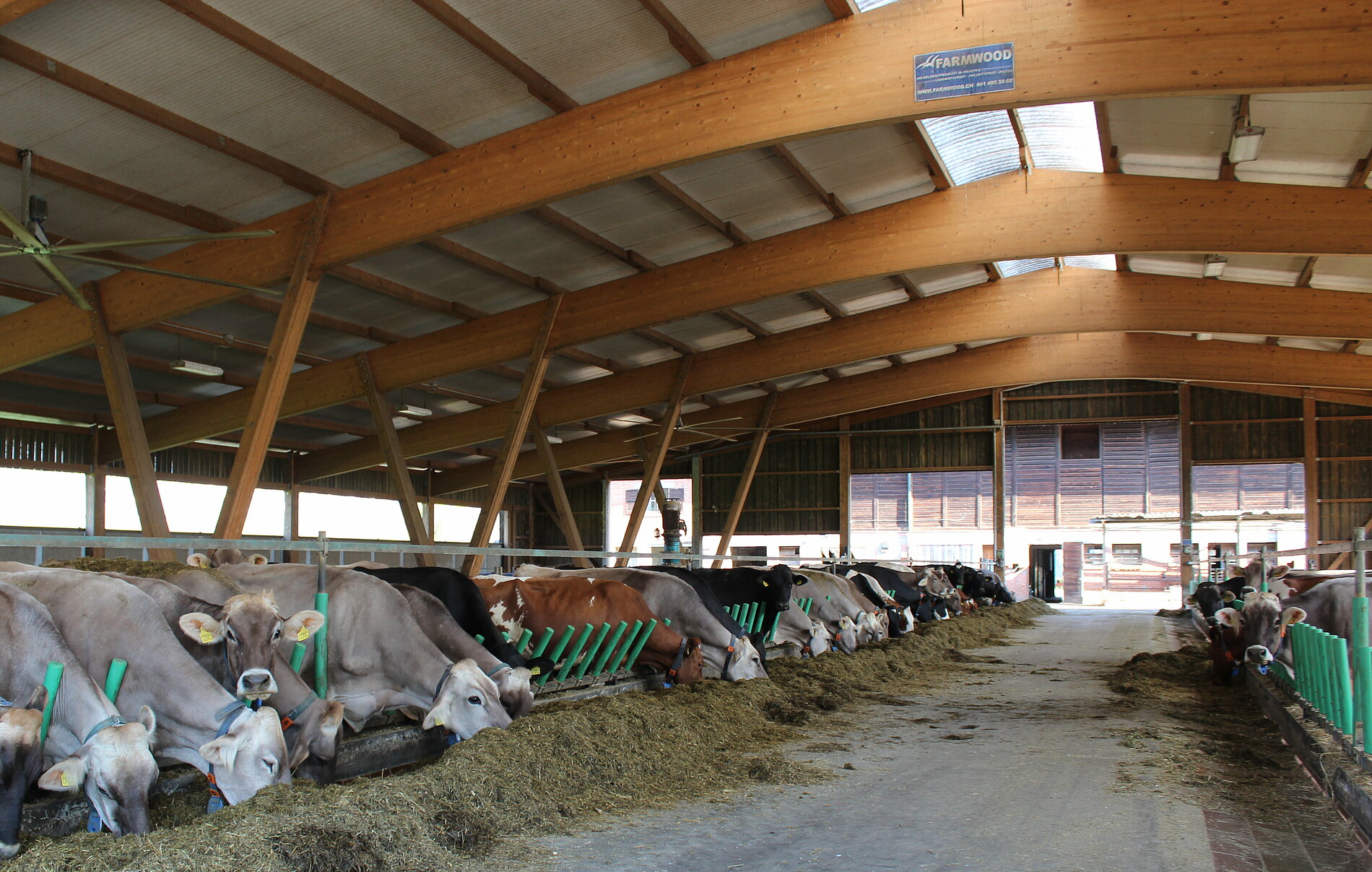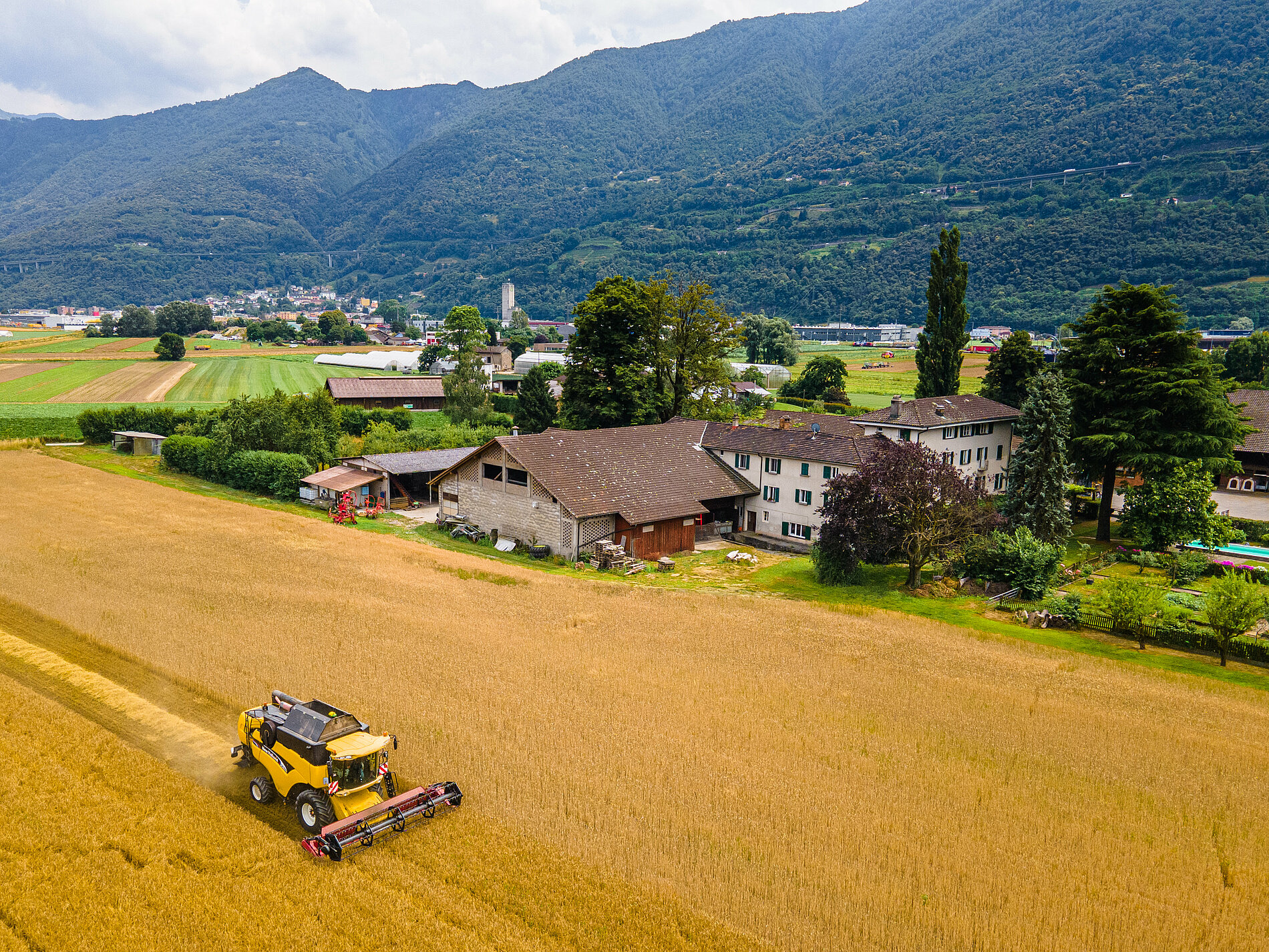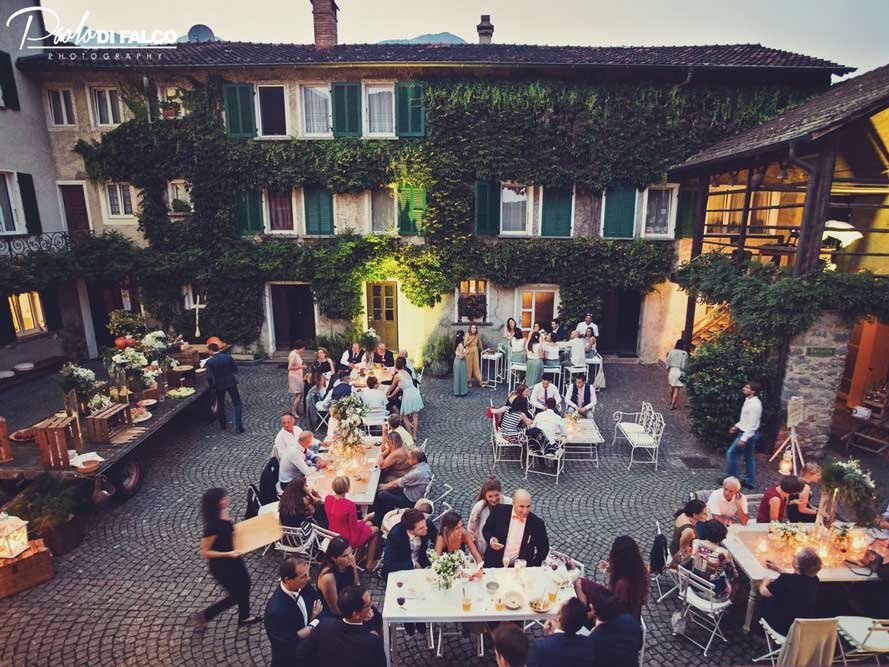Adrian Feitknecht: Animal welfare is more than just straw bedding
Interview by Erminia Ciarleglio, DLG
Adrian Feitknecht from Switzerland has been a member of the DLG since 1996. He was born in Bellinzona (CH) in 1988 as the fourth son of Ulrico and Rosa Feitknecht. He is a native Italian-German speaker and has spent his entire life at Masseria Ramello. His dream has always been to be able to run the farm where his whole family has lived and worked for decades.
Mr Feitknecht, where exactly is your farm located?
Our farm is located in the heart of the Magadino plain between Bellinzona and Locarno, about 100 kilometres north of Milan and 200 kilometres south of Zurich. We run a mixed organic farm with dairy cattle, breeding sows, arable farming, a malthouse as well as agritourism and events. We also produce renewable energy on our roofs and from our farmyard manure.
What is the impact of organic farming? How do you avoid chemical crop protection?
In addition to 80 cows and 100 suckler pigs, we also “breed” as much soil organisms as possible. Microorganisms, fungi, worms, insects and birds ensure that most crops do not require plant protection, but they also mobilise a variety of elements and make them available to the plants. We are convinced that this is reflected in the flavour of our products. In the case of potatoes that are currently treated with copper, we are constantly trying to use new, resistant varieties in order to reduce the use of pesticides as much as possible.
How do you approach the animal welfare aspect?
For us, animal welfare is not just a bit of straw bedding. A calf that has regular exercise suffers less from respiratory problems. A sow that can burrow in the mud is healthy and happy. For every kilogram of grass that a cow brings home from the pasture in her stomach, I don't have to handle the tractor several times before it ends up in the same place.
It's not all rosy, of course, but most of the measures make sense and ultimately justify the higher selling price.
Can you tell us something about your cultivation methods for cereals?
Before sowing, a calcium-based bioactivator is spread on wheat and barley to strengthen the stability. The rest of the fertilisation is provided with liquid digestate. With lime from sugar beet production and kieserite, we try to ensure that the conditions are right to utilise the cation exchange capacity of our soils. Weeds are controlled with a harrowing pass in spring and, if necessary, another in autumn. In the case of maize, a share hoe with goosefoot blades is used after harrowing. Here too, one pass is usually sufficient. We can therefore dispense with plant protection products in the cereals.
How does the local climate influence the development of your crops?
The relatively long growing season in Ticino allows us to produce arable grass for the cows in winter and to make two cuts in spring before producing maize. We often grow soya or maize after barley or potatoes. This allows us to cover the ground all year round and utilise the nutrients efficiently. If grass is planned after the winter cereals, we first sow our own mixture of sorghum, summer flax, guizotia and phacelia to ensure ground cover in summer.
How do you integrate agritourism into your business?
A few years ago, we decided to limit the events to weddings. We usually organise two weddings in May and two or three more at the end of the summer. For this, the machine hall is cleared out and cleaned and the whole farm is polished to a shine. This means that around 600 to 800 people a year come to us and enjoy the "charm" of our pergola and the romantic atmosphere in the courtyard while being spoilt by the culinary skills of our catering team. Afterwards, the party continues in the machine hall with a live band until late into the night.
What benefits do you derive from your many years of DLG membership?
We have been regular visitors to the EPP congresses since 2014. We have campaigned for the establishment of a Swiss EPP sector and we have also been to Agritechnica several times.



